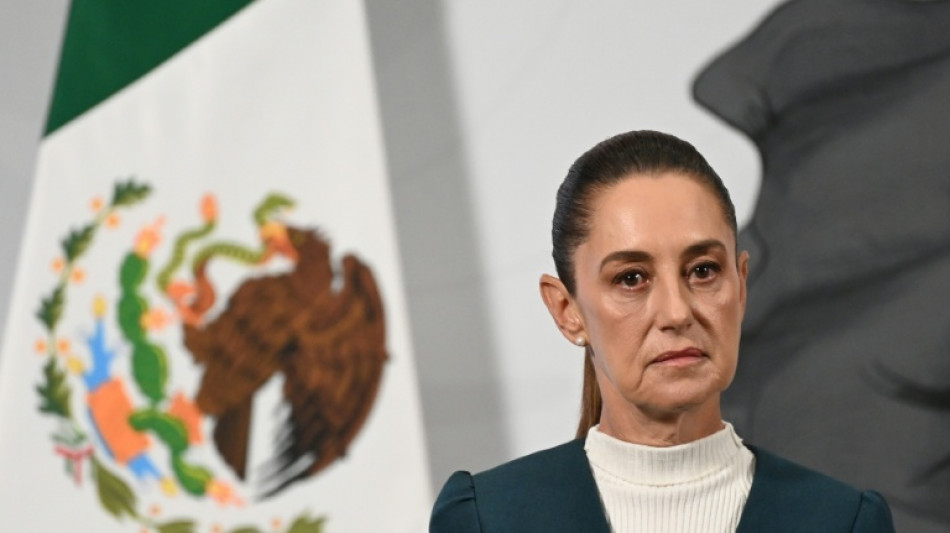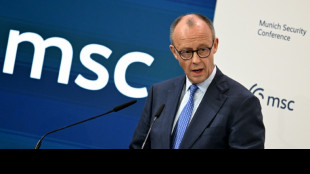

Mexican leader calls for tougher sexual harassment laws after attack
Mexican President Claudia Sheinbaum called Wednesday for sexual harassment to be made a crime nationwide after being groped on the street in an attack that underscored the dangers women in the Latin American country face.
Sheinbaum, 63, was attacked while greeting supporters near the presidential palace in Mexico City on Tuesday as she was walking to a public event.
A drunken man approached her, put his arm around her shoulder, and with the other hand touched her hip and chest, while attempting to kiss her neck.
A member of the presidential security detail pulled him away. Mexico's first woman president initially appeared confused by the incident, which was caught on camera, even agreeing to take a picture with the man.
He was later arrested.
The incident put the focus on Mexico's troubling record on women's safety, with sexual harassment commonplace and rights groups warning of a femicide crisis.
Around 70 percent of Mexican women aged 15 and over will experience at least one incident of sexual harassment in their lives, according to United Nations data.
The UN says an average of 10 women are murdered every day in Mexico.
- Conflicting codes -
Sheinbaum said Wednesday she had pressed charges against the man and would review nationwide legislation on sexual harassment.
"My thinking is: if I don't file a complaint, what becomes of other Mexican women? If this happens to the president, what will happen to all the women in our country?" she told her regular morning press conference.
She said she "only realized what really happened after seeing the videos."
Mexico's 32 states and Mexico City, which is a federal entity, all have their own penal codes.
Mexico City defines sexual harassment as "conduct of a sexual nature that is undesirable to the person who receives it" and is punishable by one to three years in prison.
Not all states, however, consider sexual harassment a crime.
"It should be a criminal offense, and we are going to launch a campaign," Sheinbaum said, adding that she had suffered similar attacks in her youth.
Feminist groups noted that such incidents were a daily reality for many Mexican women.
"Every day they are experiencing this situation of harassment, of intimidation," Veronica Cruz, of Las Libres (The Free Ones) feminist collective, said, calling the fact of "it happening even to the president of the Republic" a symbol of the problem.
The attack also drew criticism of Sheinbaum's security detail and of her insistence on maintaining a degree of intimacy with the public, despite Mexican politicians regularly being a target for cartel violence.
At rallies nationwide in September to mark her first year in power, she allowed supporters to embrace her and take selfies.
- 'Very worrying' -
Former anti-drug prosecutor Samuel Gonzalez told AFP that Tuesday's incident sent a message to criminals that the head of state is "vulnerable," a development he called "very worrying."
"It's a political contact strategy that does jeopardize her security," security analyst David Saucedo said.
Her guards "should check that anyone approaching her is not intoxicated or armed," he added.
Despite the concern, the former Mexico City mayor has ruled out increasing her security.
"If there's no risk to us, we'll continue as we have been. We need to be close to the people," she said.
Ch.Buidheach--NG



